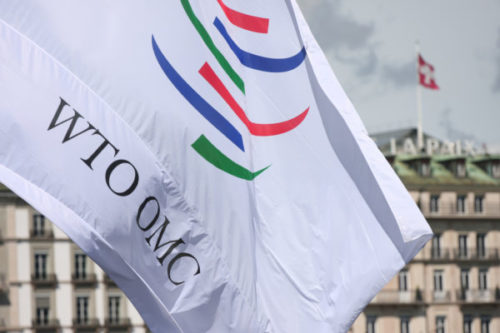
The European Union on Monday published proposals for reform of dispute settlement at the World Trade Organization (WTO), saying that it has agreed with China, India and other countries.
The bloc is hoping to overcome U.S. objections that have thrown the WTO into crisis.
The WTO is scrambling to develop a plan for the biggest reform in its almost 24-year history after President Donald Trump brought the world’s top trade court to the brink of collapse by blocking appointments of its judges and threatening a U.S. withdrawal.
“Now, together with a broad coalition of WTO members, we are presenting our most concrete proposals yet for WTO reform. I hope that this will contribute to breaking the current deadlock,” European Trade Commissioner, Cecilia Malmstrom, said in a statement.
Trump’s administration has targeted the watchdog of global commerce as part of a wider campaign against trade arrangements he contends have cost hundreds of thousands of U.S. jobs.
U.S. Ambassador to the WTO, Dennis Shea, has repeatedly criticized the WTO’s appellate body, effectively the supreme court of world trade, of overstepping its authority and breaking its own rules, potentially invalidating its judgments.
He has demanded the appellate body abide with the rules and has blocked the appointment process, slowly cutting down the number of judges. There are now the bare minimum of three, but from December 2019 there will be only one, making it impossible for the WTO to issue final appeals.
An EU official said the bloc had identified five U.S. concerns, and the new proposal addressed them comprehensively, adding that it was now up to Washington to do its part.
The proposals will be presented at the WTO’s General Council, its highest-level format outside of a ministerial meeting, on Dec. 12.
Shea has said the United States objected to an earlier version of the EU proposals, saying they went against the U.S. desire to increase accountability at the Appellate Body.
The EU official said the EU had not received any official response from the United States to the latest proposals.